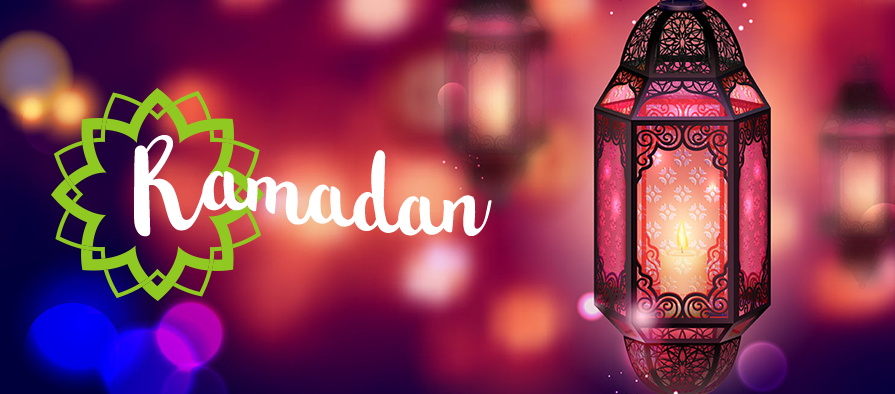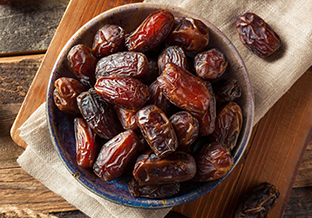
Ramadan is a period of fasting, reflection, devotion, generosity and sacrifice observed by Muslims around the world. The word ‘Ramadan” comes from the Arabic root word for “parched thirst” and “sun-baked ground”. It is an expression of the hunger and thirst felt by those who spend the month fasting.
What are the health and wellness benefits of Ramadan?

How many calories should I consume per day during Ramadan?
That depends on your BMR, but typically you will consume 40% less calories during fasting. Why? Because on average, you only consume three meals (breaking of fast, supper and sahur) and although you may consume more calories per meal than a non-fasting day, it still can’t make up for those typical 5-7 meals per day.
What should I eat during Ramadan?
Just like any other time of the year, maintain a balanced diet. Whether you break your fast or sahur, make sure that your meals are balanced.
SAHUR TIPS

Although the pre-dawn meal (Sahur) is not obligatory, it’s a blessed part of Ramadan & helps to prepare you for the deed of fasting.
Complex Carbohydrates Fasting teaches you to control your urges and make you more disciplined. When it comes to health and fitness, self-control is always key.
Reduce SaltThe more salt you consume during sahur, the more water your body will want to absorb. Sounds good? Well, not really. During fasting, the additional salt will increase the body’s need for more water and expedite dehydration.
Salty food to avoid: Chips, cookies, crackers, sauces, soups, fried food etc.
Target Caloric Intake: Approximately 500kcal For the average person’s caloric intake during sahur, I would recommend an estimate of 500kcal. Be sure your meal is relatively balanced and contains a healthy source of carbohydrates and proteins.
- Example 1: A fistful of rice, chicken or beef (protein), vegetables and 1-2 dates
- Example 2:2x slices of bread, a little spread of tuna, salmon or sardine for protein and 1-2 dates.
Avoid Caffeine Caffeine found in beverages like coffee or tea has two qualities, making them not ideal for sahur.
- Diuretic: Caffeine makes the body to flush out water. It’s not great during Ramadan as you would want to avoid dehydration.
- Stimulant: Caffeine is a stimulant that can make sleeping after sahur difficult.
Water: How Much To drink? Whatever you do, don’t drink too much. The more you drink, the faster your body will try to flush out the excess water! Here are some guidelines:
- How much? 2-3 glasses of water will suffice.
- Temperature: Room temperature is the best as it would not shock your system in the early morning hours of sahur.
- Type: Regular water is best but if you must drink juices, keep it to 1 small glass.

What is the first thing I should eat or drink when breaking fast?
I personally opt for a couple of dates and plain water. The sugar from dates will provide energy while water cures your dehydration.
Reminder: Although your cravings might intensify and probably cloud your judgement, stick to a balanced meal – no matter what.
TIPS FOR IFTAR

Iftar is indeed a joyous time with friends and family. The following are some quick tips that will help you to avoid overloading on calories.
Start your meal with dates but… Dates are excellent to break your fast. They contain simple and complex sugars to give you a quick boost and sustainable energy for your maghrib prayer, prior to your actual meal. Dates are also rich in potassium which can help to restore the balance of your bodily fluids.
The 20-minute rule To help you avoid overindulging during iftar, remember this: From your first bite (dates, for example) it takes about 20 minutes for your body to start feeling full and reach satiety. If you eat continuously during the entire 20 minutes, you will most likely overeat.
Target caloric intake for iftar: Around 700 kcal Your estimated calorie intake for iftar should be around 700 kcal. Whatever you do, don’t start with large amounts of cakes and desserts. Instead start with 1-2 dates, followed by these steps:
- Step 1: Choose your carbohydrates. Rice, breads or potatoes, but stick to one fistful. Again complex carbs are better.
- Step 2: Choose your proteins. Chicken, fish, beef, etc. Opt for leaner cuts that are grilled or steamed if possible.
- Step 3: Additional fibre from vegetables and fruits will help with cravings.
- Step 4: Desserts. Keep this last and don’t go overboard.
What to drink? During iftar, consider 3 types of drinks:
- Hot drinks: I personally like to break my fast with a warm cup of tea as it helps to awaken my digestive system.
- Water: Trust me, you are not as thirsty as you think you are. One glass of water is adequate when you are breaking fast. Then, have more along your meal.
- Sweet drinks or juices: Sugar-based drinks or juices are obviously delicious but they are loaded with calories.
What if you want to exercise immediately after iftar?
Stick to easy-to-digest foods or fluids. Then give it 20 minutes before you start your routine.
Example: 1-2 dates, water, isotonic drink, a banana and whey protein
MY OWN 'SUPPER' SURVIVAL GUIDE
‘Moreh’ is a phrase we use in Malaysia to describe the late evening meal between iftar and sahur. I would highly recommend that you make it part of your Ramadan, especially to even out your daily caloric distribution but don’t go crazy. Here’s how I do it:
So with sahur (500kcal) and iftar (700 kcal), your total daily Ramadan calorie intake is just around 1600kcal. This will help most people lose 3-4kg.